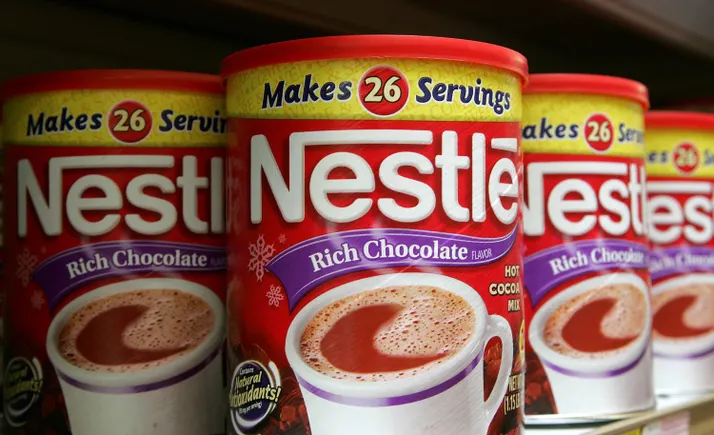Nestlé is changing how it reports the nutritional value of its products following criticism that the Hot Pockets and Nescafe manufacturer is not doing enough to sell healthier foods.
Starting with Nestlé’s next non-financial report, the Switzerland-based company will “evolve our nutrition reporting” by issuing data aligned with the Access to Nutrition initiative, a foundation pushing for a healthier food supply, CEO Laurent Freixe said in a post this week on LinkedIn.
The Lean Cuisine and Tombstone pizza maker also plans to include a sales-weighted average measure both for relevant categories, and for its total portfolio. Nestlé said it will continue using the Health Star Rating system as the basis of its nutrition profile reporting, Freixe added.
Investment non-profit ShareAction has criticized Nestlé for how it measures and reports sales from nutritious products.
It noted last year that Nestlé includes items under its “nutritious” category, such as coffee, infant food and milk formula for young children, despite the Health Star Rating system not applying to these products nor being recommended by health professionals.
ShareAction asked the CPG giant to set targets to increase the proportion of its sales derived from better-for-you products to “dramatically improve” the company’s impact on public health. Nestlé shareholders overwhelmingly voted against the proposal.
Freixe, however, agreed to improve reporting following a meeting with a group of ShareAction investors in late 2024, he said on LinkedIn. The move is meant to make it easier for investors to compare companies and their portfolios across the food industry.
In his LinkedIn post, Freixe said “for us to succeed, transparent discussions with stakeholders are a must.”
ShareAction, which calls on food and drink companies to reduce reliance on unhealthy ingredients and report transparently about the healthiness of their portfolios, applauded Nestlé’s decision.
“We welcome Nestlé’s decision to improve transparency on how many healthy product sales they are making following close engagement with investors on the issue,” Garance Boullenger, healthy markets initiative lead at ShareAction said in a statement. “It sends a powerful message that the biggest food company in the world is setting a high standard for the industry on health and nutrition reporting.”
Boullenger called on other companies to take “responsibility for their role in the global health crisis,” saying firms such as Coca-Cola, PepsiCo and Mondelez “are dragging their feet.” Freixe echoed a similar message, noting he hoped “other companies in the food industry will consider following our lead.”
Food manufacturers have come under pressure to improve the nutritional value of their portfolios as consumers look to eat healthier. Unhealthy diets have been tied to a host of illnesses including diabetes and heart disease. The World Obesity Organization estimates the economic impact of overweight and obesity will surpass $4 trillion by 2035.
In 2023, Nestlé estimated 37% of its net sales, excluding pet care and specialized nutrition, come from products that are considered “healthy” based on the Health Star Rating system. It added that 43% of its net sales came from food and beverages that should be consumed occasionally or that should have their nutritional value improved.
That same year, Nestlé vowed to boost sales of more nutritious items by about $21.8 billion to $27.3 billion by the end of this decade. This represented about 50% growth over its 2022 sales.







